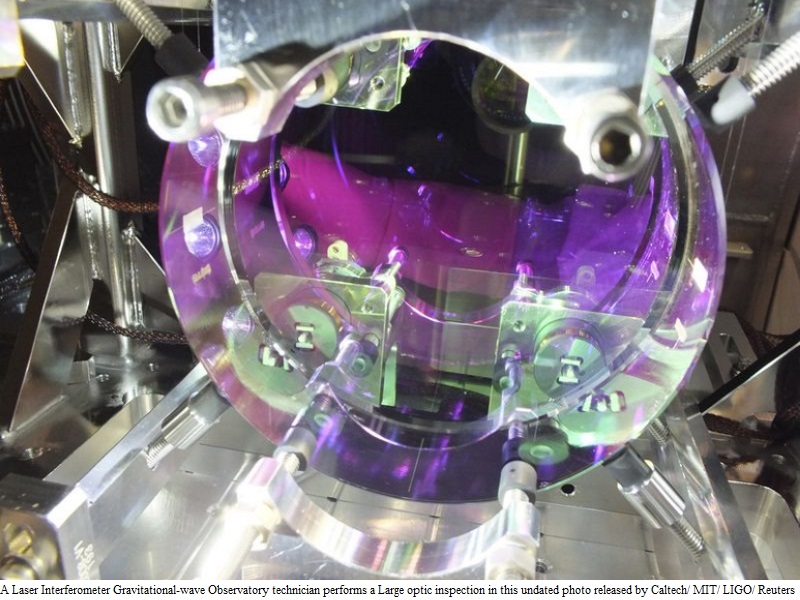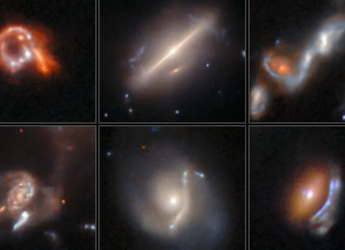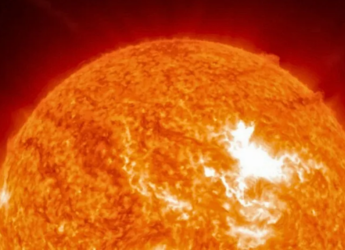- Home
- Science
- Science News
- Gravitational Waves Detection: How Indian Institutes Pitched in With Research
Gravitational Waves Detection: How Indian Institutes Pitched in With Research

Several institutes, including Institute of Plasma Research (IPR) Gandhinagar, Inter University Centre for Astronomy and Astrophysics (IUCAA), Pune, and Raja Ramanna Centre for Advanced Technology (RRCAT), Indore, were involved in the research.
The announcement of detection of gravitational waves was made simultaneously at IUCAA, Pune, and by scientists in Washington DC, USA.
(Also see: What Are Gravitational Waves, and Why Should You Care?)
Incidentally, India is also one of countries where an advanced gravitational laboratory is being set up.
The Laser Interferometer Gravitational-wave Observatory (LIGO) project operates three gravitational-wave (GW) detectors. Two are in the USA at Hanford in the state of Washington in the north-western part of the country, and at Livingston in Louisiana, south-eastern USA.
Currently, these observatories are being upgraded to their advanced configurations (called Advanced LIGO).
The proposed LIGO-India project aims to move the Advanced LIGO detector from Hanford to India.
LIGO-India project is envisaged as an international collaboration between the LIGO Laboratory and three lead institutions in the IndIGO consortium: IPR, IUCAA and RRCAT.
The LIGO lab would provide the complete design and all the key detector components.
Indian scientists would provide the infrastructure for installing the detector at a suitable site and would be responsible for commissioning it.
The observatory would be operated jointly by IndIGO and the LIGO-Lab and would form a single network along with the LIGO detectors in USA and Virgo in Italy.
Prime Minister Narendra Modi on Thursday expressed joy over the historic detection of gravitational waves and lauded the role of Indian scientists in the project.
"Immensely proud that Indian scientists played an important role in this challenging quest," he tweeted.
"Historic detection of gravitational waves opens up new frontier for understanding of universe," he said in a series of posts on the micro-blogging website.
Get your daily dose of tech news, reviews, and insights, in under 80 characters on Gadgets 360 Turbo. Connect with fellow tech lovers on our Forum. Follow us on X, Facebook, WhatsApp, Threads and Google News for instant updates. Catch all the action on our YouTube channel.
Related Stories
- Samsung Galaxy Unpacked 2025
- ChatGPT
- Redmi Note 14 Pro+
- iPhone 16
- Apple Vision Pro
- Oneplus 12
- OnePlus Nord CE 3 Lite 5G
- iPhone 13
- Xiaomi 14 Pro
- Oppo Find N3
- Tecno Spark Go (2023)
- Realme V30
- Best Phones Under 25000
- Samsung Galaxy S24 Series
- Cryptocurrency
- iQoo 12
- Samsung Galaxy S24 Ultra
- Giottus
- Samsung Galaxy Z Flip 5
- Apple 'Scary Fast'
- Housefull 5
- GoPro Hero 12 Black Review
- Invincible Season 2
- JioGlass
- HD Ready TV
- Laptop Under 50000
- Smartwatch Under 10000
- Latest Mobile Phones
- Compare Phones
- OPPO A6v 5G
- OPPO A6i+ 5G
- Realme 16 5G
- Redmi Turbo 5
- Redmi Turbo 5 Max
- Moto G77
- Moto G67
- Realme P4 Power 5G
- HP HyperX Omen 15
- Acer Chromebook 311 (2026)
- Lenovo Idea Tab Plus
- Realme Pad 3
- HMD Watch P1
- HMD Watch X1
- Haier H5E Series
- Acerpure Nitro Z Series 100-inch QLED TV
- Asus ROG Ally
- Nintendo Switch Lite
- Haier 1.6 Ton 5 Star Inverter Split AC (HSU19G-MZAID5BN-INV)
- Haier 1.6 Ton 5 Star Inverter Split AC (HSU19G-MZAIM5BN-INV)

















